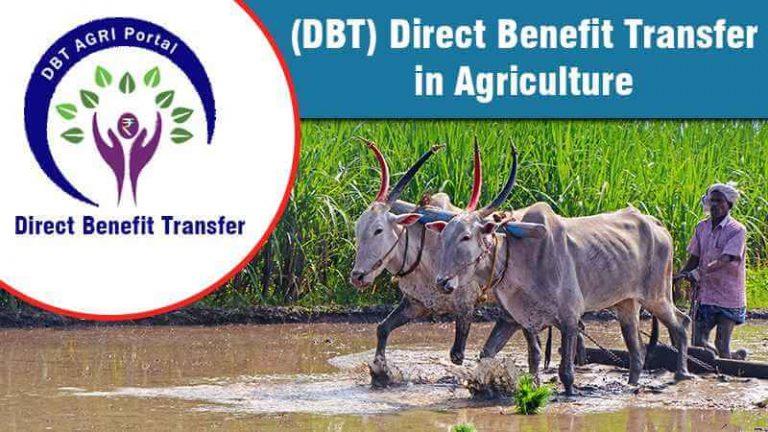Introduction
Direct Benefit Transfer (DBT) has emerged as a game-changer in various sectors in India, and agriculture is no exception. The Indian agricultural landscape is undergoing a significant transformation with the introduction of DBT in various agricultural schemes and subsidies. This article will delve into the impact of DBT on agriculture in India, highlighting its benefits and challenges.
- Elimination of Middlemen
DBT has significantly reduced the role of intermediaries and middlemen in the agricultural sector. Traditionally, farmers had to navigate a complex web of agents and middlemen to access subsidies and benefits. This often resulted in leakages and delayed payments, depriving the farmers of their rightful dues. With DBT, funds are transferred directly to the farmers' bank accounts, ensuring transparency and timely disbursement.
- Targeted Assistance
One of the primary advantages of DBT agriculture is its ability to provide targeted assistance to the most disadvantaged and deserving farmers. Government subsidies and benefits can be precisely channeled to those in greatest need, enabling marginalized and small-scale farmers to secure the financial aid necessary for their agricultural endeavors.
Financial Inclusion
DBT has contributed to enhancing financial inclusion in rural India. The process of linking Aadhaar cards with bank accounts has allowed farmers to access various government benefits, such as the Pradhan Mantri Kisan Samman Nidhi (PM-KISAN) scheme, which provides direct income support to farmers. As a result, farmers now have access to formal banking services, enabling them to save and invest their money securely.
- Improved Efficiency
DBT has streamlined administrative processes, reducing bureaucratic red tape and making the disbursement of subsidies more efficient. The use of digital technology has simplified the application and verification processes, ensuring that eligible farmers receive their benefits without undue delays. This improved efficiency directly contributes to the economic growth of the agricultural sector.
- Transparency and Accountability
DBT has brought greater transparency and accountability to the agricultural subsidy system. Farmers can easily track their transactions and verify the amount credited to their accounts. This transparency minimizes the scope for corruption and fraudulent practices, ensuring that the intended beneficiaries receive their entitlements.
Challenges:
- Digital Divide
While DBT has been largely successful, it faces challenges related to the digital divide in rural India. Many farmers lack access to smartphones and reliable internet connectivity, making it difficult for them to access DBT benefits. Addressing this issue is crucial to ensure that DBT reaches all farmers.
- Aadhaar Authentication
Mandatory Aadhaar authentication for availing benefits under DBT has been a point of contention. Some farmers face difficulties in linking their Aadhaar cards with their bank accounts, leading to exclusion from government schemes. Simplifying the authentication process and providing alternatives for those without Aadhaar cards is essential.
- Awareness and Education
Many farmers, especially in remote regions, lack awareness and the necessary digital literacy to navigate the DBT system. Government efforts to educate farmers about the benefits and the process of availing them are crucial to ensuring widespread participation.
Conclusion
The implementation of Direct Benefit Transfer (DBT) in agriculture has initiated a revolutionary transformation within the sector. This change not only improves the livelihoods of farmers by channeling financial assistance directly to their bank accounts but also elevates the overall efficiency, transparency, and accountability of the agricultural subsidy system.
Despite persistent challenges, the ongoing expansion of digital infrastructure and educational endeavors, as demonstrated by platforms like Khetigaadi's website, will play a pivotal role in surmounting these hurdles and guaranteeing the extensive implementation of Direct Benefit Transfer (DBT) across rural India. This innovative approach represents a substantial step forward in advancing the economic development of the Indian agricultural sector, greatly benefiting the crucial contributors to the nation's prosperity – its farmers. For more details on this transformative progress, please visit the Khetigaadi website

